Kosovo - Kosova Crisis |
Before the strikes
Sign or get bombed
Rambouillet agreement was designed to give Albanians in Kosovo the autonomy that Milosevic took away from them following the collapse of former Yugoslavia. As in case of Dayton agreement in Bosnia, the international community gets the broad authority over the region, overlooking the implementation of the agreement, i.e. locals are ordered to lay down their weapons and let themselves be policed by NATO troops, the peace agreement serves as a substitute for the constitution, and the chief of implementation mission, a foreigner, has the actual governing power in the province - at least until a democratic government shapes up from the local political forces.
Albanians, of course, signed such an agreement. Serbs did not. They found it too humiliating to voluntarily de facto surrender a piece of territory, which they believe is rightfully theirs, to foreign military forces, under a threat of aerial bombing should they refuse to sign. In just a few weeks from now there will be the 48 anniversary since Germans bombed Belgrade. I am curious if NATO is waiting for that day.
For those who think that Rambouillet agreement is favoring one side (Albanian): you are right, but you should consider the high level of crimes against humanity in which Serbian army was involved in past decade in Croatia, Bosnia and now in Kosovo. For example, while I am writing this Serbian forces are shelling some small village in Kosovo with heavy artillery unavailable to KLA guys, who sit there in that village and sing to avert fear while shells fly over their heads.
It is also thought that Serbs already mined all roads, bridges and tunnels that NATO forces may use to crossover to Kosovo. A few days ago Serbian police intercepted Newsweek journalists and harassed them for a while asking questions like: "do you want to live?"I wonder, though, whether the agreement may be used as a legally binding document if the signature is obtained at the gun-point. In Dayton, the U.S. used similar hazing tactics by having dinners with the parties in hangars with cruise missiles and stealth fighters.
Clear & Present Danger
At the session on the U.S. policy in Balkans at House Armed Services Committee, Walter Slocombe, Undersecretary of Defense for Policy, used the magic words: "situation in Kosovo is a threat to national security interest of the U.S." Since this might not look as obvious to others (particularly to Republicans), he proceeded by invoking ghosts of the WW I (when the "great" war started in the Balkans, as Ike Skelton - a Democrat - mentioned) and the WW II (when the Balkans played a very important role, too). What they are really scared of is the flow of refugees that would end up in Italy - many of them on their way to their relatives in the U.S. The possibility of the Kosovo war to spill over and include other countries is reasonably high in case of Macedonia or Albania, but I am convinced that Greece and Turkey (both NATO members) would not get involved. If they do, then Balkans conflagration becomes connected to the Middle East one, creating one big instability zone.
Waste of taxpayers money
Republican (chair of the committee) Floyd Spencer (SC) had a different view: "Peacekeeping in the Balkans is degrading our ability to fight real wars if they break out." Cold war in essence was a war of economic attrition - and it is far from over. Soviet Union lost, because it had an initially weaker economy - but the U.S. suffered, too. And the U.S., as the sole remaining super-power still suffers: peace-keeping spreads its armed forces thin, and as Skelton noted - the only real change after the end of the cold war was the drastic reduction of U.S. Armed Forces - meaning there is less of them and they are more spread. Other Republicans in House and, particularly, Senate, were just awfully conscious about hurting the sovereignty of the country, that the U.S. does not even recognize (FR Yugoslavia).
Quality of life funding
Enters Wesley Clark, Gen., Commander in Chief for the U.S. European Command, yammering about ancient infrastructure in the Army barracks, and lacking funds for education of kids of military personnel. It is still better than in Russia, where officers haven't been paid for several months, but it could be better. And given that Gen. Clark defended President Clinton's position, some funds must be on the way already. His pronunciation of "Republika Srpska" was impeccable, and he was obviously well briefed (unlike people's representatives who asked him questions). He stated that the re-enlistment in Bosnia was the highest in the Army. This is true. American soldiers on duty in Bosnia are proud of their assignment - they see themselves in a constructive, rather than the destructive role habitual to the military job. The only real problem is boredom. Gen. Clark elegantly avoided using that word, but he did say that they finished building a running track in the woods near Tuzla and that they were building a polygon for urban fighting simulation (now that real urban fighting is over...). And how about that halfpipe on Igman?
Kosovo - Republika Srpska
In Bosnia there is strange paranoia spreading: the angst that if Kosovo gets autonomy, Republika Srpska will get autonomy, too. This nonsense reminds of the beginning of the war in Croatia, when it was held (mostly by Serbian side) that Croatia's independence (from Yugoslavia) must be followed by the Krajina's independence (from Croatia). But it wasn't. In one of the early agreements, all republics of former Yugoslavia (except one) were recognized as sovereign states within the borders they had as republics of former Yugoslavia - meaning Republika Srpska will always be an "entity." Rambouillet agreement, also, calls for ‘autonomy' not ‘independence' of Kosovo. In reality, with Rambouillet Kosovo would get inside Serbia, what Republika Srpska got inside Bosnia with Dayton.
Montenegro vs. Yugoslav Army
The only republic of former Yugoslavia that never sought or declared independence - Montenegro- now faces serious problems. Montenegrin president, Milo Djukanovic, promised his citizens that their boys would not be sent to fight NATO forces, but the Yugoslav Army joint chiefs of staff determined that would constitute treason, and refused to do that. Some of the Montenegrins sent to Kosovo already died. Furthermore, Yugoslav Army extended military service for one month to all soldiers who were due to leave last week. Montenegrin leadership and Yugoslav Army are in the war against each other. Montenegrin media write about the Army in the same terms Slovenian media wrote ten years ago. Is it just a question of time when the tanks will roll out on the streets of Podgorica?
Belgrade - Saigon
Following French and British decision to stop waiting for the Serbs to sign the agreement (since they are obviously reluctant to do so), six embassies in Belgrade were evacuated and Monitors from Kosovo are preparing to leave, too - leaving NATO free hands to go ahead with the raid.
Skies are beginning to clear over the Balkans and as NATO ships are closing in on positions to launch cruise missiles on Yugoslavia, the Yugoslav ambassador to Moscow, brother of Yugoslav president Milosevic, is calling for more talks. Enough has been said, maintains NATO chief Javier Solana. The only acceptable Serbian/Yugoslav action now would be for Milosevic to sign the Rambouillet agreement surrendering the control of Kosovo to NATO troops, which is precisely what British government urges him to do in the last minute effort to stave of the bombing raids. Basically, this is a call for unconditional surrender, which Milosevic cannot accept in the face of Serbian population who oppose it at a 70% rate.
Michael O'Hanlon (Brookings Institution) in the op-ed piece in NY Times (3/23) came up with an interesting suggestion of partition of Kosovo in the part that would be held by Albanians and be given autonomy and the part that would be held under Serbian control - as the Bosnia was partitioned in two entities. Of course, we don't know how the parties would react to that proposal since it was never put on the table.
Unlike the euphoric reaction Wall Street produced in connection with the Gulf War, raids against Yugoslavia were met with scepticism: DOW fell more than 200 points yesterday and got back up today for barely 2 points, and then start dropping again with the procrastination of the air strikes beginning.
The U.S. public is divided on the issue as well, and the mostly see the bombing justifiable only on the moral grounds - to stop the genocide of Kosovo Albanians - and not on the grounds of national security interest as the U.S. administration tries to present it.
The Senate approved the raids (58:41) only after Solana gave the order, and with loud protests of about half of Republicans and some Democrats.
Senator (R) Kay Bailey-Hutchison, sometimes sound as she is a product of Serbian lobby (to be fair, Dole and Biden sound like they are working hard for the Albanian cause): "U.S. never before went on bombing an independent nation who does not pose a security threat to the U.S.," she said. Well, what was Vietnam, then? "To forcibly remove a standing president is heinous...," she added. Yes, but wasn't it done with Noriega, Allende and Peron before?
The argument that the U.S. is behaving somehow different in case of Kosovo is simply wrong. The U.S. believes that it has the right and, moral obligation to police the unruly world, and this belief increased with winning the cold war.
Only, now it seems that the cold war may be far from over...
5 months went by since that week passed and the attack still has not begun. Senate Republicans argument that this is an "all of a sudden" decision is, therefore, wrong, too. After all, they are the ones who criticized Clinton for waiting too long to act upon Bosnia. Now they bring up the dreaded issue of "graduated escalation" - a term used to describe the failed U.S. policy in Vietnam. And there they, unfortunately, might be right: months of hazing did not produce favorable results - Milosevic continued to pursue his military strategy against Kosovo Albanians as if the threat of NATO attack did not exist, and when the threat was made more imminent, he proceeded to fortify his positions and brace for the attack. Now, when attack is practically under way, one can't help but to fear that attack is designed only to save NATO's face and not to actually solve the problem, which would require far more of a commitment than throwing a few dozen of Tomahawk missiles ($750,000 a piece), a commitment that Congress might never be ready to approve.
Cruise missiles are ideal to hit unmovable targets. They are very precise, and there is virtually no way to defend against them. But Serbian means of destruction - both the ground forces used to demolish Albanian homes and the sophisticated air defense system designed to effectively counter any NATO non-stealth aircraft - are highly moveable, and without clear skies (so that satellites may track the movement), air raids may prove not as efficient as planned. Pentagon announced that it may use the B2 stealth bomber (that carries bombs that work well in all weather conditions).
The skies are clearing and hazing continues: CNN Headline News, that Milosevic certainly watches, shows vehicles shuttling (painfully slow) between the guided missiles storage and stealth aircraft hangars at Aviano air-base... For the first time in history we are able to witness the process of an attack. So it is the time to examine pros and cons of possible raids.
The Administration argues that if Serbia is allowed to continue its war against Albanian population on Kosovo, the flight of Albanian refugees to neighboring Macedonia (where the Albanians already constitute 40% of population; and so far in past two weeks there were 5000 Kosovo refugees) could severely destabilize that country. Such a scenario would draw Macedonia and possibly Albania in the war with Serbia, and might involve Greece and Turkey, both NATO members who are often at each others throats.
In more real-politik terms: air strikes against Yugoslavia provide the U.S. with valuable opportunity to combat test its new B2 stealth bomber, and the conflagration in the Balkans provides the U.S. to reposition its Europe based 365 thousands men strong armed forces and adjacent hardware (from Germany to Bosnia, Macedonia and Kosovo).
On the other hand by committing the attacks the U.S. risk the relations with China (that announced that act as being against the international law) and Russia: prime minister Yevgeni Primakov turned his plane back to Moscow in mid-flight canceling his visit to Washington to protest the NATO go-ahead. He essentially turned his back on $15 billion of IMF loans designated to buy Russia's compliance with NATO plans. Foreign minister Ivanov issued threats that should NATO go with air raids, Russia will unilaterally lift the arms embargo against Yugoslavia, thus providing Yugoslavia with more sophisticated weaponry to counter NATO.
Russian Duma still did not ratify the START II agreement on reduction of nuclear weapons, and for sure it won't ratify it now - thus bringing us back to the cold war era. Leader of Duma's Yabloko block, Yavlinski, called Primakov's decision to turn the plane back - "a gesture of the cold war style." He urges Milosevic to sign, but he also wants to see Russian troops as a part of the peace-making operation in Kosovo. Reuters interviewed people waiting for visas at the American embassy in Moscow: they too oppose the attack. Yeltsin and Clinton talked today for 35 minutes. Nobody said what about they talked. But the NATO air raids scare continued unimpeded with that conversation.
Italy, also, is not that happy with NATO using the Aviano base for its F-117 Stealths, that should carry the first-line attack against the Yugoslav mobile air defense system and heavy weaponry used against Kosovo Albanians. They fear that Milosevic may retaliate by SCUD missiles, which he allegedly obtained earlier in nineties. Rome, Vienna and Istambul are in the reach. On top of that Italy is not that happy with U.S. airmen in general since the accident last year in which a low flying American pilot cut the cable car cable killing twenty.
Cruise missiles and Stealth fighters may knock down the Yugoslav air defense, SCUDs and eliminate quite a few heavy artillery pieces, but they cannot stop Milosevic in his pursuit against Albanian population on Kosovo. This can be done only by sending in ground forces, and that puts American lives at risk, for what Clinton still does not have the support of Congress and the American people.
At this time NATO threats accomplished only straining relations between the U.S. and Chine and the U.S. and Russia, and inside the NATO, which most certainly was not what they were hoped to achieve in terms of defending American national security interest.
So, the air strikes designed to help Kosovo Albanians may eventually turn against them, if they are not followed by NATO ground troops. It is indeed indisputably noble cause to come to defense of 2 million people imperilled by the brutal military offensive aimed to drive them off from their land. The situation in Prishtina is hairy. Air-raid sirens are tested earlier today. Yugoslav troops introduced curfew and checkpoints. The situation in Kosovo countryside is bleak. Yugoslav Army continues to pound places suspected of being KLA-UCK strongholds. There is no reason to believe that Milosevic will abandon that pursuit unless rendered entirely toothless by NATO - which air strikes alone simply cannot accomplish.
In fact air-strikes may put many more Albanian lives in jeopardy, should Serbs choose to retaliate in that way: even Albanian political organizations in Prishtina fear that. Only the KLA welcomes the raids, since they have nothing to loose - they gamble that Yugoslav Army may be weakened enough by NATO air strikes which would help them prevail in the struggle for independence. However, they are not entirely happy with NATO ground troops at their stomping grounds, aware of how the international forces successfully took the power over from Alija Izetbegovic. The fact is that this is a gamble, and they may be wrong and end up like Kurds in Iraq: conquered and forgotten.
Yugoslavia shut off its borders. Yugoslav Army replaced Montenegrin border patrols along Montenegro-Albanian border, oblivious to Milo Djukanovic (Montenegro's president) protests. It is just question of time when the Army will move against him (and it also might come as retaliation to the strikes). Yugoslav Army continued the draft and indefinitely canceled the release of soldiers who completed their military service. Many young men in Yugoslavia are in hiding. Yugoslavia also shut off all international communications, and seized communications equipment from foreign news (like CNN) and wire services. Milosevic called upon people to defend the country by all possible means. As one of the first signs of retaliatory behavior, Belgrade police shut the independent radio station B92, the US favored media in the region, at 3 a.m., seizing the transmitting equipment (B92 was capable of operating independently of Serbia's power grid and telephone lines) and for the first time during Milosevic reign, my friend Veran Matic, the editor- in-chief of B92 was arrested and taken to a still undisclosed location. B92 opposed the draft and advised young men to hide.
At this moment the only result of NATO threats are more vigorous Yugoslav Army attacks against Albanians on Kosovo, closing of western embassies in Belgrade, Yugoslavia's shutting off from the world and shutting down the main independent electronic media in Serbia. Repression and more repression. This certainly was not what NATO wanted to accomplish in terms of its moral obligation, was it?
Generally, the best solution would be to simply March into Serbia in the way allies marched into Germany in 1945, take Milosevic down, and create a democratic government paired with generous re-development support. That would solve the problem. The risks and casualties however are to great for the U.S. in 1999 to contemplate such a move. Instead we will continue to witness a series of half measures that will basically result in more prolonged bleeding in the Balkans.
What do Lyndon Johnson and Adolf Hitler have in common? They are both being compared to Bill Clinton for what he's done (or for what he has not done) in the Balkans recently. Certain Congressional Republicans draw the Clinton-Johnson parallel hinting that Clinton is dragging the country in a prolonged vietnamesque involvement overseas. Now that they lost their legal case to oust him from the office - which by the way costed the taxpayer nearly as much as the stealth fighter that crashed over Bujanovci - they have to find some other way. Particularly amusing is to hear such accusations of adventurism from a character like Ollie North, the key player in the Iran- Contra scandal. The comparison to Hitler, of course, comes from the Serbian TV. Many other things come from Serbian TV: like they say that Albanians are leaving Kosovo because of NATO air strikes. And the Serbs believe.
In the spirit of the headline for this article (which I borrowed from some bloke from Brookings Institute, who used the phrase to describe the substance of the NATO presence in the region), now, in the second week of the strikes, 1700 sorties and 100 cruise missiles later it is time to evaluate the action. So far, NATO carries the military victory, but overall winner - if you count political gains and losses - is undeniably Slobodan Milosevic. Here is why:
Paradoxically, the superpower of the world is losing the war against a small rogue state. And that in spite of destroying its military potential. Obviously, this suggests it is either time to stop or to change the tactics. The U.S. opted to change the tactics (European allies would rather stop): the A-10 Warthogs are in knocking down tanks over Kosovo, and government buildings in downtown Belgrade are the next cruise missile targets. Vatican, of all places (an ur-enemy of Orthodox Serbs in the Serb nationalist mythology), came out suggesting to NATO to cease air strikes over Easter weekend. Clinton flatly rejected on grounds that such a pause would give a chance to Serbs to continue the ethnic cleansing campaign in Kosovo. Excuse me? Aren't they continuing that campaign right now despite the NATO air strikes? Unless Clinton is prepared to follow with the ground troops pretty soon and pretty aggressively, he'd better consider the 48 hours cease-fire, and have satellites and U-2s and Predators (the unmanned spy-plane that CIA did not yet launch from Albania, due to the guidance system failure...) watch whether Serbs would stop, as Milosevic wowed through Primakov they would do. Because soon there will be no more Albanians in Kosovo, and then the whole action would be in vain. CNN and MSNBC, which now so hawkishly support Clinton on the strikes, are not pliant sycophants as Serb TV, and if Clinton's strikes prove to be a failure, they are going to have no mercy on him. And, btw., mentioning the Serb TV, why is this weapon of psychological warfare still on, as if a Tomahawk couldn't have been used to knock down the TV tower on Avala and deprive Milosevic of this important tool of his rule?!
Day One
Clearing The Skies Over Balkans
U.S. Never Did That Before
Graduated Escalation
"Cruise missiles were the silent partner in the high-stakes diplomacy going on last week to force Yugoslav President Slobodan Milosevic to halt his brutal siege of Kosovo and negotiate with the province's ethnic Albanians. The U.S. has already used its arsenal of air- and sea-launched cruise missiles to turn out Baghdad's lights during the Gulf War, retaliate against terrorists and assassins, and force the Serbs to the peace table in Dayton, Ohio. Now Serbia and Yugoslav President Milosevic are in the cross hairs again. If the massacres of ethnic Albanians in Kosovo do not stop, NATO warns, and Serb troops and special police are not pulled out, the missiles will fly. NATO has put together a plan of action that would begin with a strike by dozens of Tomahawks launched from U.S. warships and submarines that were in the Ionian Sea last week. If not headed off by diplomacy, the attack could begin this week." (Tomahawk Diplomacy - It's a brilliant little machine, but it can't hit everything, and it doesn't do politics; By BRUCE W. NELAN in TIME MAGAZINE, OCTOBER 19, 1998 VOL. 152 NO. 16)
National Security Interest - what is at stake
Moral Obligation - what is at stake
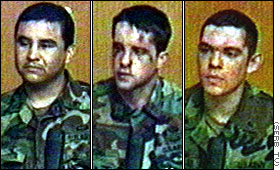
Week Two
Extension of Stability & Security
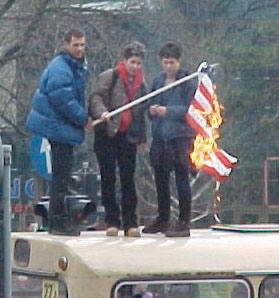 Serbs, unlike NATO, were never as united as they are now. Government, opposition, alternative - everybody is against the strikes (and the strikes in downtown Belgrade won't help that). Hooligans destroyed McDonalds in Belgrade in a protest against the American way. Around the world Serbs organize demonstrations, which sometimes end up violently. It seems that there are Serbs in every major Western city. Albanians, with some delay, now organize counter- demonstrations in support of NATO. It seems that there are Albanians in every major Western city, too. In New York you can see a "Thank You Americans!" banner in nearly every Pizza parlor. The possibility of demonstrations and counter-demonstrations turning to violence terrifies city officials in the West, however - to the point that some Mayors (like the one in Brussels) banned any public assembly altogether. Not only that Milosevic's recalcitrance made NATO fail in its objectives, but it also brought a rift between NATO countries while bringing unity to the Serbs, and now it even threatens to impose itself over the cherished Western values like the freedom of assembly.
Serbs, unlike NATO, were never as united as they are now. Government, opposition, alternative - everybody is against the strikes (and the strikes in downtown Belgrade won't help that). Hooligans destroyed McDonalds in Belgrade in a protest against the American way. Around the world Serbs organize demonstrations, which sometimes end up violently. It seems that there are Serbs in every major Western city. Albanians, with some delay, now organize counter- demonstrations in support of NATO. It seems that there are Albanians in every major Western city, too. In New York you can see a "Thank You Americans!" banner in nearly every Pizza parlor. The possibility of demonstrations and counter-demonstrations turning to violence terrifies city officials in the West, however - to the point that some Mayors (like the one in Brussels) banned any public assembly altogether. Not only that Milosevic's recalcitrance made NATO fail in its objectives, but it also brought a rift between NATO countries while bringing unity to the Serbs, and now it even threatens to impose itself over the cherished Western values like the freedom of assembly.

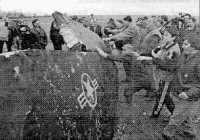
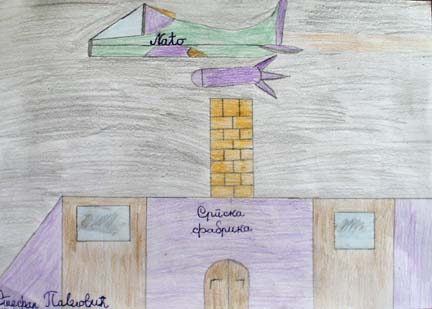



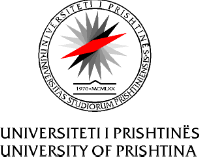
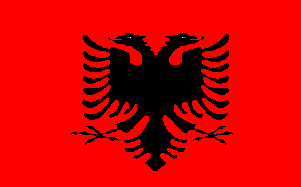
 PLANET GENERATION GLOBAL MOVE
PLANET GENERATION GLOBAL MOVE




